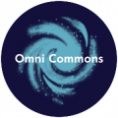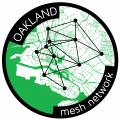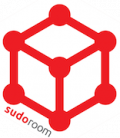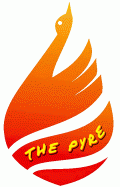Last week, a student in the Cyberspace Ethnography course taught by Maximilian Forte at Concordia University sent me some questions for a class presentation on The Virtual Campfire. Below are some of my reflections on the process of conducting virtual fieldwork, the advantages and disadvantages of digital ethnography, issues of immersion and techno-utopianism, and what it means to be a “digital native” studying and writing about the experiences of those grappling with the uncomfortable process of integrating new communication technologies into everyday life.
Do you think there is an accepting view towards doing an ethnography online?
Among those who have an understanding of what an ethnography is – a minority even among the highly educated – I would say most definitely. It’s certainly become well-known among the digerati thanks to the highly public work of, for instance, Mike Wesch at KSU (a professor of anthropology currently working on an ethnography of YouTube) and danah boyd (not “technically” an anthropologist, but a staunch advocate of ethnography via her work on youth and social networking sites).
In my research with danah through the Berkman Center, which focuses on pro-self-harm websites and online communities, it’s become clear to me that ethnography is a critically important methodology in promoting empathetic understanding of youth online practices and combating the moral panic that’s driving Internet censorship campaigns and related policy issues. Unfortunately, quantitative data tends to trump qualitative research when it comes to policy. I had to take statistics twice because I hated it so much I dropped not only the class, but my second major in psychology. I’m glad I came back to it, because in the world of research it’s important to know how to critically analyze a wide range of methodologies and the biases inherent in them. Anthropology as a discipline tends to be overly self-conscious, while psychology is just the opposite. Combining the confidence of quantitative psychology studies with the sensitivity of ethnographic accounts is truly empowering
Based on your work what were the advantages and disadvantages to doing an ethnography online? Any major obstacles encountered?
Basically, I make a habit out of interpreting the human interactions around me as though they were originating from a bunch of crazy space monkeys. Then the whole cyborg element doesn’t seem so much of a stretch.
But seriously, as I mentioned in my thesis one of the most problematic aspects of virtual ethnography is the voyeuristic nature of ‘lurking’- being able to watch without being seen. I attempted to compensate for my voyeurism by participating fully in the communities I was researching, skirting along that longstanding anthropological borderline between participation and observation. People reveal a lot online, which is one of the greatest advantages of doing virtual fieldwork. Inhibitions are lowered, because social networking sites induce an illusion of privacy. One of my greatest difficulties was making distinctions between information intended to be publicly accessible and that which should be kept confidential.
Many of the advantages of cyberethnography are also disadvantageous: the potential for invisibility, while it eliminates the issue of “contaminating” the habitus in introducing a prominent gaze, may be ethically suspect; the absence of face-to-face interaction may decrease inhibitions, but it also frequently results in misinterpretation; immersion in internet culture may connect one to a wider world of information and interesting individuals, but it can also be addictive and painfully isolating at times.
There is the also the issue of the distance necessary for writing a quality ethnography. Most traditional anthropologists do fieldwork in a foreign land, then return home to reflect upon their experiences. With my virtual ethnography, the distinctions between fieldsite and writing collapsed entirely. Like most recent college students, I’d developed the habit of procrastinating from writing papers by regularly navigating to Facebook. So, I would log in to Facebook and notice so many things (clearly), and of course the technology is always changing rapidly. At a certain point, my advisor had to tell me to stop conducting fieldwork, and make a clear transition to writing and reflection. That was hard.
In doing ethnographic work, learning a new language may be a problem. Did you encounter any problems with language? The glossary of words in your appendix were familiar to you beforehand?
When I first got into anthropology, I was taking Swahili classes and planning to travel to Zanzibar for field research. Having been an exchange student in Denmark the year prior to starting college, I was acutely aware of just how disorienting culture shock can be, and how incredibly difficult it is to understand the subtleties of a new language. It occurred to me at some point that a single semester of fieldwork in Zanzibar would hardly qualify me to write authoritatively about the subject – it would hardly qualify me as much more than a tourist, really.
As I delved deeper into my studies, I found myself drawn to postmodern theory and autoethnography. Having been an awkward outsider for so long, the intimate community I’d begun building at Wesleyan was extremely important to me, and given how quickly college passes by, I didn’t want to miss a moment of the story we were writing together. When social networking sites exploded in popularity around 2004-2005, right as I was becoming obsessed with anthropology, they naturally converged. While I’d long considered my white, middle-class American background to be boringly average, it became apparent to me that my immersion in various cybercultures since adolescence granted me exactly the kind of authority I needed to deeply explore the increasing prevalence of social media in the everyday lives of those around me. As my friends and interviewees struggled to articulate the pleasures and conflicts they experienced through this new medium, I found myself drawing from my extensive experience of virtual life- making comparisons, filling in the gaps, elucidating connections. Comfortably connected to my campus community, friends and strangers alike came to me when they had a story to share about Facebook or MySpace.
In the beginning, there was much more of a stigma surrounding social networking – in group conversations, mentioning you’d heard about some piece of gossip from Facebook might’ve garnered some teasing, for instance. In my interviews, people expressed feelings and told stories they’d never felt comfortable expressing to others out of fear of being labeled narcissistic or shallow. It helped that I made it clear how immersed I was in online sociality and shared my own embarrassing tales. Being eager to talk about Facebook back in the day was pretty lame. They could be lame with me. 😉
So in sum – I maybe had *too* good of a grasp of the language, being so utterly immersed. When I wrote my first paper on Facebook back in 2005, my professor pointed out the need to define terms and practices I took to be self-explanatory. Rather than attempting to master the linguistic subtleties of my informants, the greatest linguistic challenge in writing this ethnography was explicating such subtleties so that readers who’d never been to these sites could understand them – hence the need for a glossary.
The campfire metaphor do you consider it to be idyllic?
It’s my belief that the heart of human connection is captured by just this metaphor – the warmth and intimacy of kindred spirits, nurtured by an ethic of mutual aid in the viscerality* of shared experiences. My view on the matter is certainly idyllic, for in the face of increasing disenchantment with the world it’s the duty of the idealist to work for its reenchantment.
To be entirely honest, it was only in the last two months of writing that I conjured up the virtual campfire metaphor, and I wish I’d thought of it sooner as there are so many ways in which it can be applied to this topic. The idyllic vision evoked by the “campfire” is more likely to stick with readers, but it’s important to keep in mind that while the warmth and light of connectivity is what draws us to gather around these new media forms, it is also what distracts us from the wolves watching in the surrounding wood (marketers, predators, identity thieves), the stars above our head (the universe beyond our “egoverses”), and the park rangers on the prowl for firestarters and underage drinking (‘net censorship advocates and moral panic propagators).
Basically, the internet is no more and no less than the people and ideas it’s made up of, which are not so very different from what humankind had been and thought of before it was invented – long before. Dispelling the myth that technology has “effects” on human experience is definitely what I was seeking to convey in writing this ethnography, though the degree to which I was successful in that endeavor is certainly debatable 🙂
*Apparently ‘viscerality’ is not a word. It is now 😛
What do you think the future holds for social networking sites?
These are unpredictable times and I’m no futurist, but the forecast looks good for more mobile, local networking technologies blending in with pre-existing business and community structures. Increasing integration of these technologies into our daily lives as we adapt to their existence – the Singularity approacheth! But who’s to know what technology we’ll think up next??
What is your definition of an ethnography?
An empathetic portrayal of the stories and everyday practices of a group of people, balancing one’s own experiences with the perspective of an alien from outer space – see ‘Body Ritual Among the Nacirema‘ for an amusing addendum to that last point.




